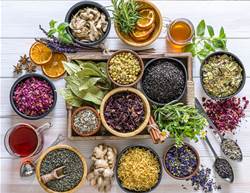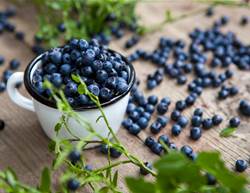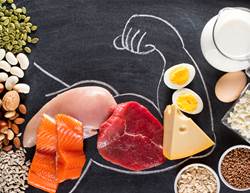Juice cleanses have had their moment—rising and falling in popularity over the years. Some people swear by them for improving digestion, “detoxing” the body or even shedding a few kilos. But nutritionists have long warned against the trend. Now, new research suggests juice cleanses might actually harm your gut microbiome and trigger inflammation.
A small study found that even a short juice cleanse could disrupt gut health. That shift may not only affect digestion but could also impact cognitive wellbeing, researchers say.
So, what exactly happens when you swap solid food for juice? Here’s what nutrition experts want you to know about how juice cleanses affect the body—and why most don’t recommend them.
What did the study find?
Researchers recruited 14 participants and asked them to follow one of three diets for three days: an all-juice diet, a juice-plus-food diet or a plant-based whole food diet. They collected saliva, stool and inner-cheek samples before the diets, immediately after, and again two weeks later.
The results? Those who followed the juice-only diet had significantly higher levels of inflammatory bacteria—likely linked to the high-sugar, low-fibre content of juices. The researchers also found an increase in bacteria associated with gut permeability, inflammation and even cognitive decline.
“These findings suggest that short-term juice consumption may negatively affect the microbiota,” the study authors concluded.
Nutrition experts aren’t surprised. “These findings add to the growing evidence that short-term dietary interventions can significantly impact the microbiome,” says accredited dietitian Scott Keatley.
Gastroenterologist Dr Marie Borum, notes that while the study is small, it highlights a critical message. “This reinforces the importance of understanding what’s in your juice and making sure fibre remains a priority in your diet,” she says.
Why might a juice cleanse negatively impact the gut?
There are several reasons juice cleanses may not support gut health. “When you eat whole fruits and vegetables, you get fibre—which is great,” says accredited dietitian Jessica Cording. “But when you juice them, you lose most of that fibre. What’s left is mainly sugar.”
A high-sugar, low-fibre diet isn’t ideal for overall health, and it can be particularly problematic for gut health, Cording explains.
Juicing also strips out insoluble fibre—the type that adds bulk to your stool and helps keep your digestive system regular. “Insoluble fibre is essential for feeding beneficial gut bacteria and supporting gut integrity,” adds Keatley.
Without that fibre, the balance in your gut microbiome can shift. “Bacteria that thrive on simple sugars, like Proteobacteria, may become more dominant, and these are associated with inflammation,” Keatley says.
Gut health relies on the right kinds of bacteria—and those bacteria depend on the food you eat. “Beneficial gut bacteria rely on prebiotics and fibre as their main food source,” explains Dr Stephani Johnson. “These are compounds that humans can’t digest, but our gut bacteria can. Juice-only diets eliminate those vital nutrients.”
All that sugar in juice doesn’t just fail to feed the good bugs—it may fuel less helpful ones. “Your gut microbiome is survival of the fittest,” says Keatley. “It reflects whatever you eat.”
Are juice cleanses healthy?
In short, no. “I’ve been begging people not to do juice cleanses for 12 years,” says Cording. While the promise of fast weight loss or a detox might seem tempting, she says it’s mostly smoke and mirrors.
“People lose weight on a juice cleanse because they’re eating less, peeing more and may have more bowel movements,” she explains. “But most of that is just water weight.”
The consequences may go deeper than gut health. Cording notes that juice cleanses can wreak havoc on your blood sugar by causing spikes and crashes. Over time, frequent blood sugar swings could lead to insulin resistance—a risk factor for developing type 2 diabetes.
Inflammation is also a concern. “Chronic inflammation has been linked to cardiovascular disease, type 2 diabetes and neurodegenerative disorders,” says Keatley. “A three-day juice cleanse may not do lasting harm in healthy individuals, but repeated or long-term juice fasting could contribute to cumulative health issues.”
What to consider instead of a juice cleanse
Juicing shouldn’t be used as a main dietary strategy, says Keatley. “If you enjoy fresh juice, try pairing it with fibre-rich foods like nuts, seeds or whole grains,” he suggests. This helps slow down the absorption of glucose and better supports gut health. “But honestly, just eating the fruits and vegetables—even if you eat fewer than what you’d juice—is the better choice.”
If you do have juice, Dr Borum recommends enjoying it alongside whole foods. This approach, she says, “can help balance the gut microbiome.”
Cording agrees—and strongly advocates for sticking to the real thing. “Instead of a juice cleanse, think about how to add more nutrient-rich fruit and veg into your day, and pair them with quality protein and healthy fats,” she says. “And make sure you’re drinking enough water. These are the habits that truly support your body’s natural detox systems—your kidneys and liver.”
Still, not all juice needs to be off the table. Dr Johnson points out that having the occasional glass of juice is very different from relying on juice as your main or only source of nutrition. “In moderation, a serving of juice can be a healthful, enjoyable way to boost your intake of antioxidants and micronutrients,” she says. “But juice-only diets are nutritionally inadequate—they lack essential fibre, protein and healthy fats.”



_(1)_(1)_(1).jpg&h=90&w=90&c=1&s=1)






